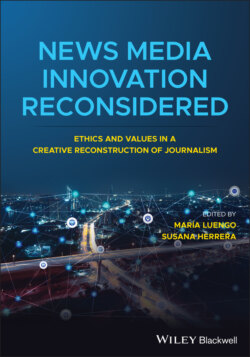Читать книгу News Media Innovation Reconsidered - Группа авторов - Страница 23
Journalism and Big Data
ОглавлениеBig Data refers to the ability to process large amounts of information, analyze it, and draw relevant conclusions. Big Data raises their own ethical dilemmas about user privacy, information security, and data manipulation, among other issues, when journalists decide how to incorporate the use of massive data into their stories.
The process of making public a large volume of data helps rethink their ethical quandaries, as many journalists have embraced such openness as a professional norm, facilitating public scrutiny of complete data sets and open programming code (Lewis, 2015). This trend can improve some journalistic processes, as Lewis (2015) states, by integrating principles such as transparency and participation in newsrooms.
The use of massive data raises ethical dilemmas associated with the collection, analysis, and dissemination of such information. Just because a content is publicly accessible does not mean that the journalist had permission to make it public for everyone (Lewis and Westlund, 2015). Problems often arise with public data provided by governments and institutions or gathered through techniques such as crowdsourcing or data scraping. Such problems can go unnoticed, either by the size of the data involved or by its public dissemination, so journalists must weigh the benefits of publishing open data against the risk of personal injury, especially when private information can be easily shared (Lewis and Westlund, 2015).
